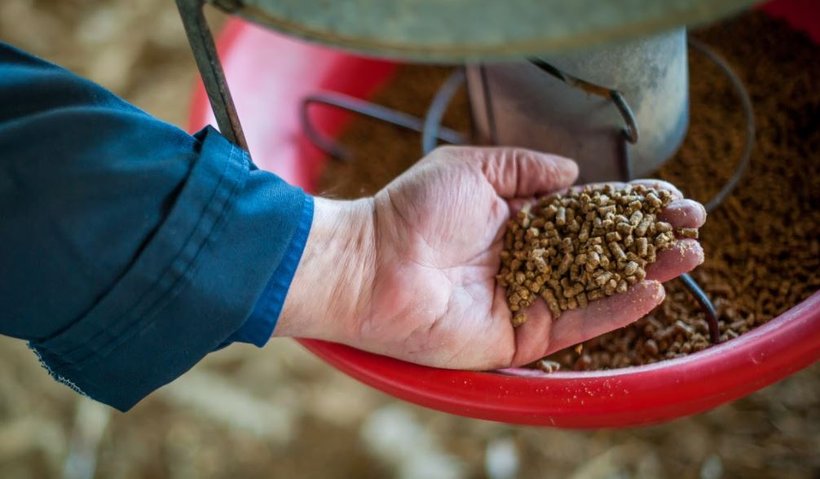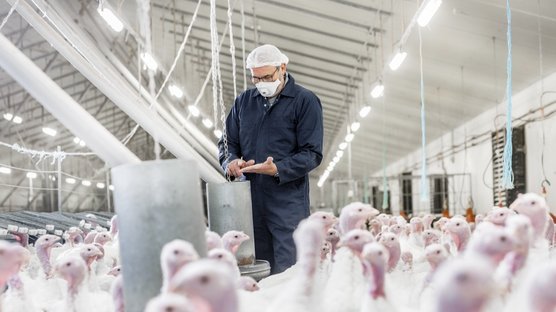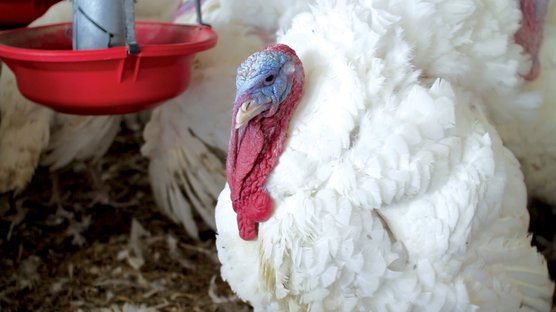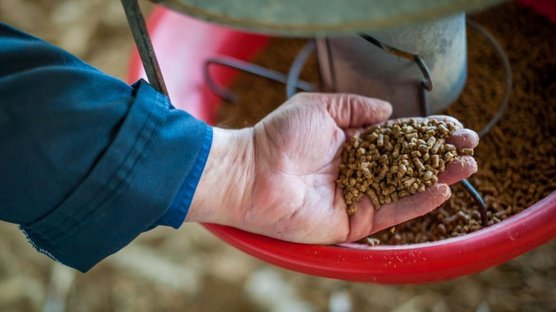
Published on Sept. 17, 2020
Ask an Expert: Dr. Dave Laurin Talks Turkey Nutrition
Did you know that feed accounts for over 50% of the cost to raise a flock of turkeys? Therefore, it is no surprise that growers look to this area to reduce operating costs. Hybrid Turkeys consulting nutritionist, Dr. Dave Laurin, suggests although the action may save money in the short term, it can have unfavourable and lasting effects on the health and performance of a flock. In this edition of ‘Ask an Expert’, we interviewed Dr. Dave Laurin to learn about the common issues he sees in the field and to get tips on the role of nutrition to optimize performance.
Tell us about yourself
I am the owner and founder of RAC Nutrition, a consulting service that provides nutrition advice for all poultry species (turkeys, chickens, gamebirds) and swine. I graduated from the University of California – Davis (USA) with a Ph.D. in Nutrition. Since 2005 I have been working with Hybrid Turkeys as consulting nutritionist. Although I reside in Canada, being partnered with Hybrid, has allowed me to travel and work with turkey growers from around the world to optimize nutrition and performance in their operations.
Why is nutrition so important to raising turkeys?
Feed is the largest economic input in turkey production and is responsible for supplying the required nutrients for growth and development. Any feed given to a turkey flock should be professionally and scientifically formulated to ensure all needs are met and to help growers achieve the results they expect. Any feed-related decisions should be done in consultation with a trained expert who uses their expertise and specialized computer software to formulate diets.
When is the role of nutrition the most important for the development of turkeys?
Feed plays a key role at all ages but if I had to pick an age, particularly when speaking about development, the earliest feeds are most important. From placement through to six weeks of age is critically important because there are certain physiological developments that happen during that time that if missed, you are unable to correct for later in life.
What is the purpose of breeder diet recommendations?
Breeders publish guidelines as an outline to optimize performance by defining the necessary amounts of vitamins and other nutrients required by their specific genetic strains. Turkey genetics are not all the same and so it is important to note that different breeds have different growth profiles. Hybrid turkeys, for example, have rapid early growth. This makes their demand for vitamins in early feeds that much more important to ensure you achieve proper bone formation to support a growing bird.
Although it is common for a grower to deviate slightly from these guidelines, extreme deviations can cause more significant issues. Click the links below to learn more about our nutrient guidelines and vitamin supplementation.
What types of issues can arise from extreme deviations to diet recommendations?
Nutrition-based issues become apparent early in life, around 2-4 weeks of age. Symptoms such as poor development of the growth plate in the leg bones can be seen manifesting itself as twisted legs or ‘cowboys’. Bone mineralization issues are generally classified as ‘rickets’ or ‘soft bones’. Both issues can build up stress and cause mobility issues which may lead to poor performance and ultimately increased mortality. Leg development tends to be the number one issue I see in the field related to poor nutrition.
Issues can also arise from improper formulation of diets, specifically regarding calcium and phosphorus levels. Also common is a lack of required vitamins in the feed such as vitamin D and the B complex vitamins that are essential for the formation of strong bones.
Additionally, deviations can affect the digestive system and cause a variety of health concerns.
What can be done to get turkey’s health back on track?
The earlier you address these issues the better, because course-correction becomes more difficult the longer the issue persists. If you fear limitations in your diet composition are causing problems, you can consider adding things to your water, such as vitamins. A good example is Vitamin D.
I do think that it is important to work with a professional nutritionist if you fear poor flock results could be related to feed. Most feed factories have their own nutritionists to provide help, but sometimes it is good practice to get a second opinion and this is where you genetic suppliers can help evaluate feed based on specific strain needs.
Do you have any closing advice?
It is common for producers to want to have the cheapest feed possible. BUT what is more important is to have the feed that helps achieves the greatest economic return.
Submit a question
To ask a question of our experts, click the button below.



